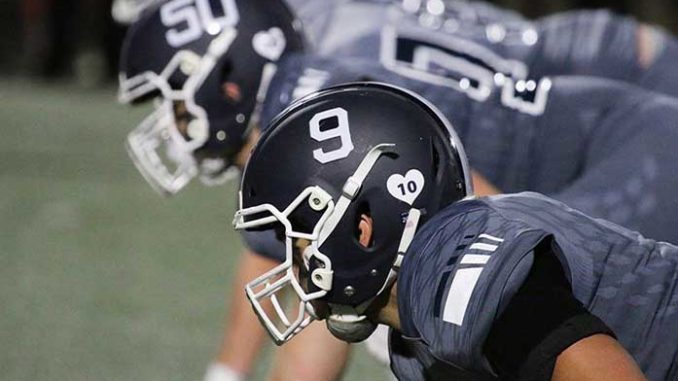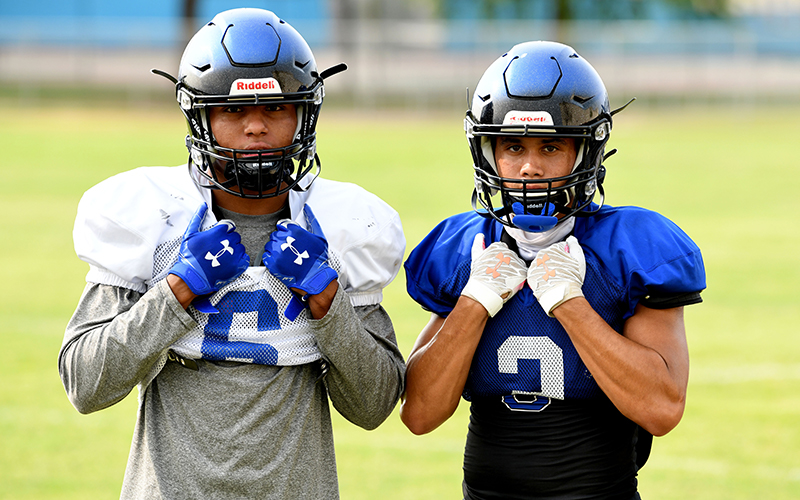
PHOENIX – For the past six months, high school athletes have been left holding their breath.
Ever since the World Health Organization (WHO) classified COVID-19 a global pandemic on March 11, the future of Valley sports in the fall has been uncertain.
“One day we’re playing, one day we’re not … now we are playing with a ‘maybe,’” Brophy College Preparatory football coach Jason Jewell said. “We’re out there practicing and doing our best to get prepared, but we don’t have the green lights yet. It’s tough.”
This constant roller coaster has brought an unwelcome side effect: an increase in anxiety and depression among high school athletes.
Just after the pandemic began, the University of Wisconsin began researching the correlation between the mental health of student-athletes and the cancellation of sports.
In a study consisting of 3,000 Wisconsin high school athletes, researchers recorded that 65% of participants showed signs of anxiety, with 40% being mild, 12% moderate and 13% severe.
Researchers also found that 68% of Wisconsin student-athletes showed symptoms of depression, with 35% being mild and 33% being moderate to severe.
“Since March, the mental health of our kids has been an increasing concern every week, every month that we have not been able to get back to some type of normalcy,” AIA Executive Director David Hines said. “It’s a very real issue that we are dealing with.”
Neurologist Javier Cárdenas predicts these symptoms of anxiety and depression will have long-term effects on these athletes, even after the pandemic ends.
“There likely will be (long-term effects from these depression and anxiety symptoms),” Dr. Cárdenas said. “People respond incredibly different to these conditions, just like they do to COVID itself. For many there will be long-lasting consequences, we just don’t know what they are going to be.”

Chandler High School’s Eli Sanders (left) said returning to practice during the pandemic “is just a blessing to be out with everyone.” (Photo by Kevin Hurley/Cronkite News)
Cárdenas said there is no way to tell how this time without sports will affect high school athletes’ brains because a pandemic is extremely uncommon.
“This (pandemic), should be a once-in-a-generation experience,” Cárdenas said. “(What were things for people with anxiety and depression) is something I have not seen published from the previous pandemic over 100 years ago.”
For those students who have had the chance to practice their sport over the past month, adjusting to new guidelines and staying safe has added some unforeseen stress.
“It takes kind of a while to adjust because this is all new to us,” Chandler running back Eli Sanders said. “We’re still working hard. It’s just a blessing to be out (at practice) with everyone.”
In order to combat the formation of the potential long-lasting effects from depression and anxiety, the AIA and high school coaches are hoping that the return of sports can help ease some students’ minds.
“The kids are juiced to be out there and we practice early in the morning,” Jewell said. “We go from 5:30 a.m. to 7 a.m. and the energy is good, attendance is not an issue.”
Although his team practices in person and the players have been cleared to play, Jewell said they still host meetings online and that he has found it challenging to be there for them off the field.
“I make it very known that if they need anything they can reach out to me, all my kids know that,” Jewell said. “It’s tough because I haven’t been around [the players] a ton. Everybody can put up a good front when you’re on an hour-long zoom meeting and you have 75 little one-inch squares to see their face and to see how they really are.”
The AIA announced the decision to change its COVID guidelines on Sept. 17, increasing the chance of high school sports to start in late September and early October.
“It’s about the kids, I want to do what’s right for them,” Jewell said. “We’re just trying to figure out ways to make this thing work and hopefully we get to play Oct. 2.”
